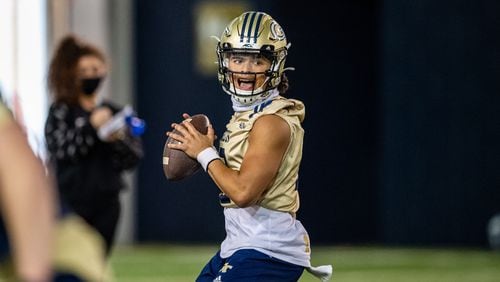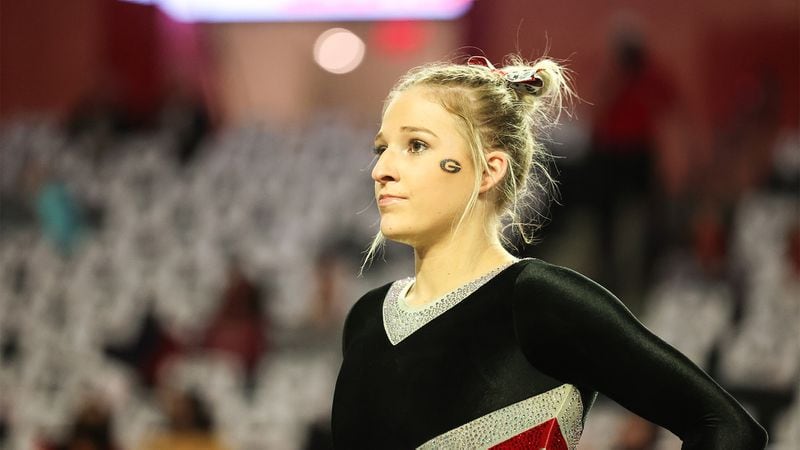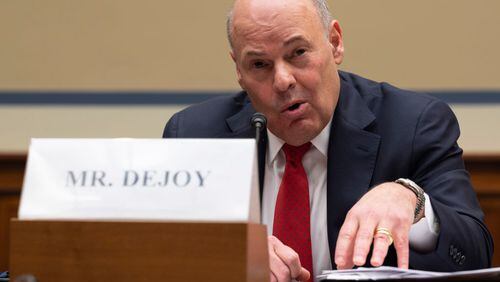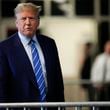The Braves have become one of the first pro sports franchises to take advantage of new state laws and NCAA policies allowing college athletes to be compensated for use of their name, image and likeness.
Braves senior director of marketing and innovation Greg Mize said the team has signed Georgia Tech football player Jordan Yates and University of Georgia gymnast Rachel Baumann to NIL contracts.
Yates, a Yellow Jackets backup quarterback from Milton High School, and Baumann, from Plano, Texas, were selected from about 500 candidates who expressed interest after the Braves put word out on social media last month that they wanted to work with college athletes in promoting the team.
Baumann and Yates “are going to be social media ambassadors or influencers for us,” Mize said. “We will create content with them when they’re here at the game. Our production team wants to do an interview with them that will air on our in-venue pregame show.”
Their compensation, Mize said, will include a stipend of about $500 and a commission on Braves tickets sold through links placed on the athletes’ social-media accounts, plus VIP-type treatment at Braves games and team merchandise.
Credit: UGA Athletics
Credit: UGA Athletics
The Braves plan to make similar NIL deals in the future with other athletes at colleges around the Southeast, Mize said, because of the “strong overlap between fandom of all these schools and the Braves.”
“We want to come out of the gate with Rachel and Jordan and see how it goes and use learnings from this go-round to impact what we do for future iterations,” Mize said.
The NHL’s Florida Panthers are believed to have been the first pro sports franchise to sign a college athlete, University of Miami quarterback D’Eriq King, to an NIL contract. The Braves said that, to their knowledge, they are the first MLB team to officially reach an NIL agreement with a college athlete.
News laws in a number of states, including Georgia, and changes in NCAA policy took effect July 1 to allow college athletes to be compensated for use of their name, image and likeness without jeopardizing their eligibility. Previously, the NCAA hadn’t allowed athletes to receive such compensation.








